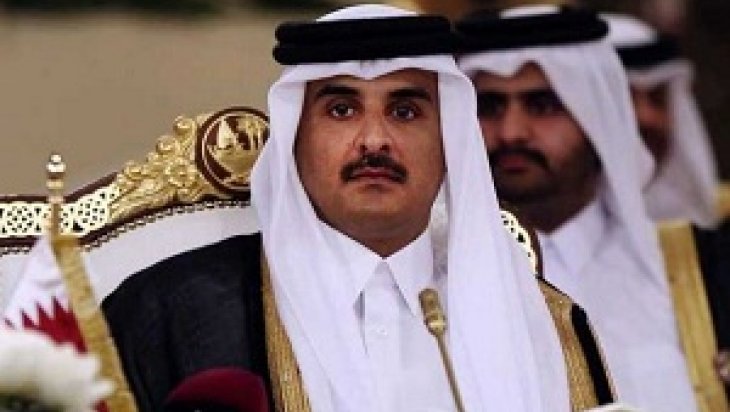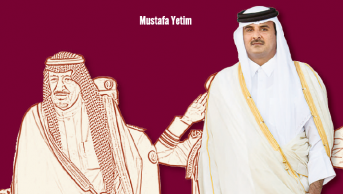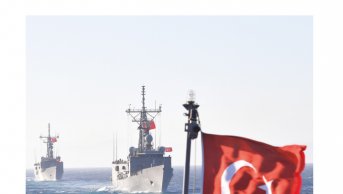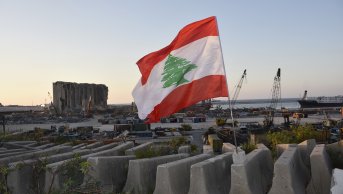Qatar and the Arab Spring: Transforming Regional Relations, Deepening Concerns

Deposing his father Sheikh Khalifa Al Thani, Hamad bin Khalifa Al Tani seized powerin a bloodless palace coup d'état in 1995, which paved the way for his 18-year-long rule. Since then, some important changes have been made in domestic and foreign policy of Qatar, whichused to be probably defined as the most boring country in the world. Democratic initiatives conducted during the Hamad bin Khalifa Al Tani’s term has intensified, as the country hosted important international events, and it undersigned reconciliation initiatives between problematic actors in the region, particularly between Islamic resistance Movement and Israel.As a result, attempts to understand domestic and foreign policies of this actor intensified. Moreover, television programs of Al-Jazeera, which has been broadcasting in English and Arabic since 1996 and which is perceived as a semi-independent and unbiased news channel,as well as Qatar’s international and regional aid program have raised political and academic interest towards the Emirate, which has a small population but big impact.
Aiming to increase its soft power capacity in the region with Al-Jazeera’s broadcasting between 1995 and 2013 about the problems of the Middle Eastern people, the international aid initiatives, and the mediation activities in the region, Qatar has opted to reinforce military-political relations with the West, particularly with the USA. Allowing the use of El-Udeid air base by American air force since 1997, Qatar has elevated its military relations with the USA to an alliance level. Despite the increased military-political relations with the USA, however, Qatar has provided support to organizations, such as Hamas and Al-Ikhwan Al-Muslimun, the influence of which in the region troubled western countries and especially the USA. Due to the policiespursued by Doha, Qatar’s foreign policy has been perceived as ‘contradictory.’Despite objections by Saudi Arabia, the Gulf’s most powerful Sunni administration, Qatar’s call for dialog in therelations with Iran, which is perceived as the source of Shia Crescent threat, and its reconciliation initiatives, such as the 2008 Doha agreement between Shia actor Hezbollah and Sunni and Maronite factions in Lebanon, can be seen as other contradictory diplomatic activities on the part of Qatar administration.
The initiatives perceived as contradictory are not only seenin Qatar’s foreign policy but also in domestic policy. The most important domestic political contradiction is Qatar’s pursuit and strengthening of the one man ruleby Al-Tani family,despite the steps towards partial democratization and modernization, such as holding municipal elections since early 1995, limiting censorship regarding freedom of press, and giving women right to vote and to stand for electoral office. As a result, we can conclude that Qatar pursues contradictory policies in both foreign and domestic policies. On the other hand, as it can be seen especially in the Arab Spring process, these policies which seem contradictory have, in fact, complementary functions. Contrary to the early predictionsthat it would contribute to the democratization in the Middle East, the Arab Spring process, which has evolved into a long lasting and destructive civil wars in the countries such as Syria, Libya, and Yemen, has shaped domestic and foreign policy of Qatar, just as the other regional countries.
Qatar has supported grassroots movements in the Middle East, whichemergedin 2011, whichcalled for democracy and freedoms, and threatenedthe political-military stability of vulnerable but rigid foundationsof one man administrations.Despite its monarchic structure,Qatar’s support forgrassroots movements and non-violent democratic demands can be seen as an expression of its contradictory approach. On the other hand, when we consider that this support is selective and its main concern is providing security for the regime as in the other Gulf countries, a monarchic country’s support for early period democracy demands, especially through Al-Jazeera’s broadcasts, can be better comprehended. Furthermore, since 2013 when the Arab Spring developments transformed into more violence and civil war, Qatar’s new emir Sheikh Tamim bin Hamad bin Khalifa Al Thani built his foreign and domestic policy vision on the security of the regime. In this framework, creating active and state-centric strategies for rapidly changing regional and local developments by controlling foreign and domestic policy making process, Qatar emirate under Al Thani family has adopted contradictory foreign and domestic policies due to the concern for security of the regime. To conclude, the main dynamic that shapes domestic and foreign policy of Qatar, Gulf’s small but influentialcountry with a population of 1.5 million, has been to providesecurity ofthe regime, i.e., the Emirate of Qatar. In this framework, like Hamad bin Khalifa Al Thani, Qatar’s new emir Sheikh Tamim bin Hamad Al Thani has pursued domestic and foreign policy strategies which are state-centric and complementary, although at first sight they might seem contradictory.
Qatarhas supported grassroots movements in 2011, and government changes in Tunisia, Libya, and Egypt. In this way, Qatar has aimed to increase its soft power with an image of a country that supportsdemocratic transformations and demands for freedom in the Middle East. Qatar’s selective and contradictory approach towards democracy and freedom demands,which intensified in the early Arab Spring,is observed most clearly in the case of its stand on the side of the Muslim Brotherhood which is a Sunni organization. It is not correct to evaluate Qatar’s thispositionas part of a sectarian approach, which has been employed to understand international relations of the Middle East recently. The criticism by the other major Sunni administration in the region, Kingdom of Saudi Arabia, to Qatar due to Qatar’s approach towards the Muslim Brotherhood, and Saudi Arabia’s discomfort with the increasing influence of the Muslim Brotherhood in the region demonstrate limits of a sectarian-based analysis of the developments in the region. On the other hand, while explaining actions and discourse of the actors in the region with reference to sectarian relations and tensions (Shia-Sunni conflict) would be an exaggeration, it remains the case that Qatar has provided political, military and economic support to Sunni groups in the countries such as Syria, Egypt, Yemen, Libya and Tunisia, and especially to the Muslim Brotherhood.
As a result of this approach, in which political-security concerns, rather than ideological or sectarian concerns, are determinant, Qatar stood up to the deposing of Mohammed Morsi, who was elected as president on 30 June 2012 and supported by the Muslim Brotherhood, through a coup on 3 July 2013. After this development, relations between Egypt and Qatar havecontinued in a problematic and limitedway.While supporting the opposition groupsfighting against Bashar Assad under the umbrella of the Free Syria Army and Syrian National Coalition, some of which close to the Muslim Brotherhood, Qatar did not provide a similar political, military and economic support to predominantlyShia groups, demanding democracy and freedom in Bahrain in February2011. Moreover, Doha administration indirectly supported the use of force to suppress demonstrations in Bahrain, where 70 percent of the population is Shia, while the administration is Sunni.
Qatar has had a selective approach towards peaceful demonstrations in the early Arab Spring period, and conflicts transforming into civil wars in Syria, Libya and Yemen. Although this approach is seen as a part of the sectarian policy, which increased since the 1980s in the Middle East, the main factor determining Qatar’s regional-local relations has been the security of the regime. For this reason, hosting one of the important religious figures of the Muslim Brotherhood, Yusuf al-Qaradawi in Doha, Qatar contributes both regionally and internationally to this organization gaining influence in the region during the Arab Spring process. Doha administration has had a positive attitude toward the rising influence of the Muslim Brotherhood, which has partly reformist perspective in terms of the participation into democratic processes, the implementation of Islamic laws and observing modern social-economic relations, because it saw it in its own interests. On the other hand, the violence produced by the civil wars in some countries in the region, such as Syria, Yemen and Libya, restricts Qatar’s soft power capacity, which increased in the early Arab Spring period. Muslim Brotherhood’s political and military recession in Egypt, Syria, Libya and Tunisia has been another development intensifying Qatar’s concerns regarding the regime’s security.
Since 2013, Qatar’s new emir Sheikh Tamim bin Hamad bin Khalifa Al Tani has taken some diplomatic steps in order to repair the relations with Egypt under Sisi administration, although they have not been fully successful yet. Furthermore, by supporting militarily and diplomatically Saudi Arabia in the Yemen crisis, and changing the attitude towards the Muslim Brotherhood, Qatar has aimed to lessen the reactions from other members of the Gulf Cooperation Council, which have been uncomfortable with the actionsof the Muslim Brotherhood. The most important diplomatic-military initiative under Qatar’s new emir is increasing the relations with Turkey to partly ‘alliance’ level. Aiming to balance its strong neighbor in the Gulf region, Saudi Arabia, and Iran, which is trying to be effective in the Middle East throughthe discourse of Shiism, Doha administration has supported Turkey’s initiatives in the region in the process of the Arab Spring. Sharing common concerns regarding threat perceptions and the groups they are supporting, such as the Muslim Brotherhood, these two countries, Qatar and Turkey, have increased military-diplomatic relations. In this regard, Qatar has approved Ankara’s establishment of its first military base in the Gulf and the Middle East, in which 3000 soldiers will be in stationed.
Foreign and domestic policies that Doha pursues in the Arab Spring period are perceived as contradictory and incompatible. Doha’s foreign policy initiatives are usually explained in reference to either sectarian basis or supporting democratic demands. Although these comments are partly true, the main determinant behind Qatar’s contradictory policies has been the concern for the regime security. To ensure the regime security, Qatar has been pursuing domestic and foreign policy strategies, which may appear contradictory when necessary.
This article was published in Ortadoğu Analiz journal with the title of "Qatar and the Arab Spring: Transforming Regional Relations, Deepening Concerns ”










